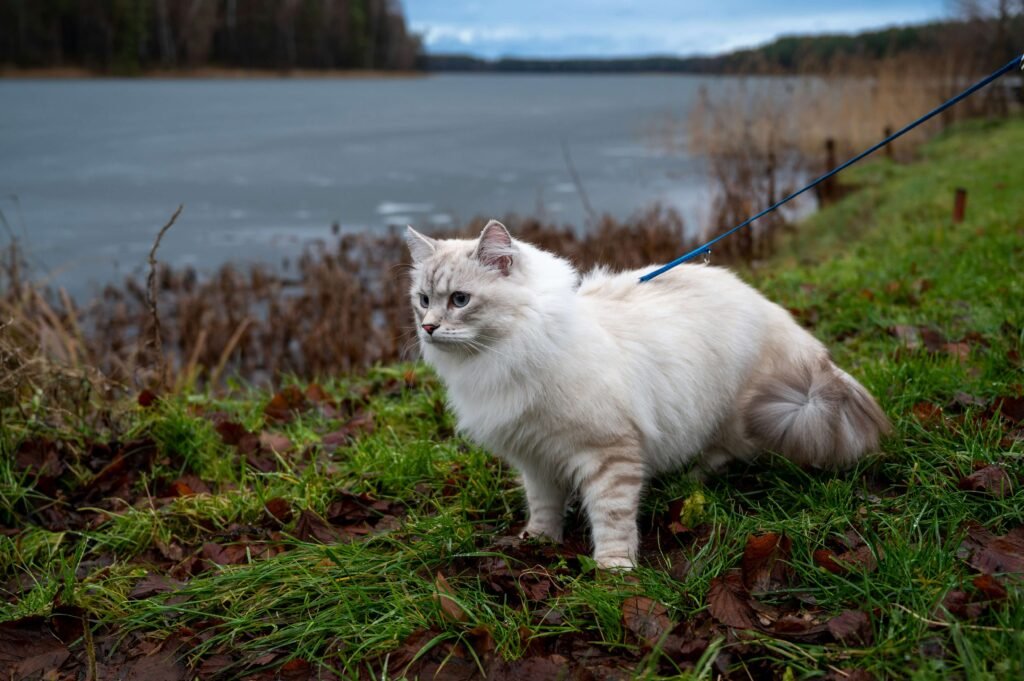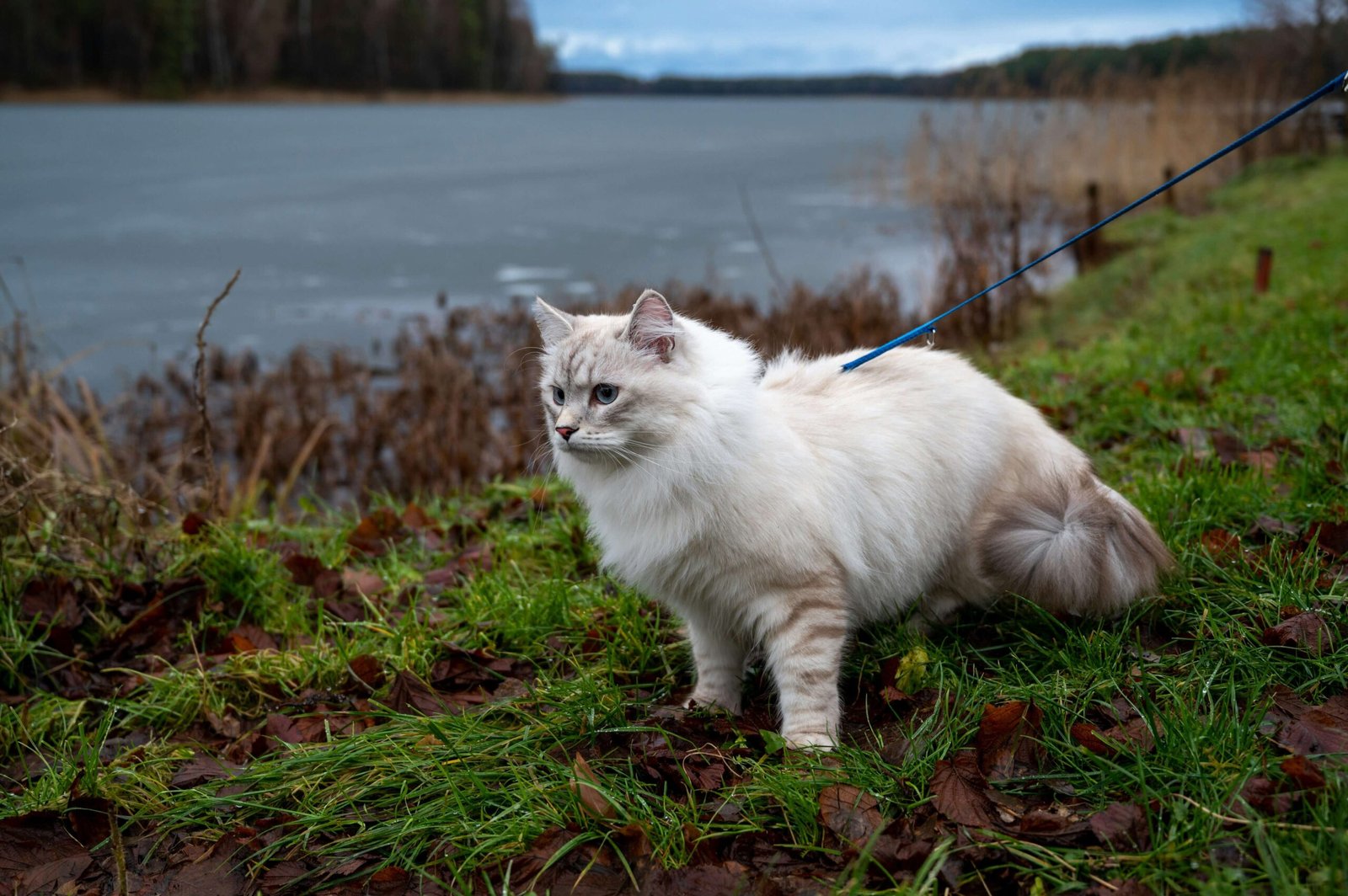Understanding Cat Constipation: Causes, Symptoms, and Solutions
Constipation in cats is a common issue that can cause discomfort and distress for your feline friend. While it may seem like a minor problem, chronic or severe constipation can indicate underlying health issues that require attention. As a cat owner, recognizing the signs of constipation early on is crucial to ensure your pet’s well-being. This blog post will explore everything you need to know about cat constipation, from identifying symptoms to effective remedies and preventive measures. By the end, you’ll be equipped with the knowledge to help your furry companion feel better and maintain a healthy digestive system.
Signs Your Cat May Be Constipated
Cats are masters at hiding discomfort, but there are telltale signs that can indicate they’re struggling with constipation. Being observant can make all the difference in catching the issue early. Here are some common symptoms to watch for:
Straining During Bowel Movements
Your cat may spend an unusually long time in the litter box, appearing to strain without producing much stool.Infrequent Bowel Movements
A healthy cat typically has a bowel movement every 1-2 days. If your cat hasn’t had one in over 48 hours, it could be a sign of constipation.Dry or Hard Stools
When your cat does pass stool, it may appear dry, hard, or smaller than usual.Vocalizing or Crying in the Litter Box
If your cat seems uncomfortable or vocalizes while using the litter box, it could indicate pain during elimination.Lethargy and Loss of Appetite
Constipation can make your cat feel unwell, leading to reduced energy levels and a lack of interest in food.
If you notice any of these signs, it’s important to monitor your cat closely and consider consulting a veterinarian if the problem persists.
Common Causes of Cat Constipation
Understanding the root causes of cat constipation can help you address the issue more effectively. Several factors can contribute to this condition, ranging from dietary issues to medical conditions. Below are some of the most common causes:
Dehydration
Cats often don’t drink enough water, especially if they’re fed dry kibble. Insufficient hydration can lead to hard, dry stools.Lack of Fiber in the Diet
A diet low in fiber can slow down digestion and make it harder for your cat to pass stool regularly.Hairballs
Excessive grooming can lead to hairballs, which may block the digestive tract and cause constipation.Obesity
Overweight cats are more prone to constipation because their reduced mobility can affect bowel function.Underlying Medical Conditions
Conditions such as arthritis, kidney disease, or megacolon can contribute to constipation in cats.
By identifying the potential cause, you can take steps to alleviate your cat’s discomfort and prevent future episodes.
Check this guide 👉How to Make a Cat Poop Instantly: Best 7 Expert Tips!
Check this guide 👉Black Cat Poop: Best 7 Expert Tips!
Check this guide 👉Cat Pooping Jelly-Like Substance with Blood: Best 7 Tips!

Preventive Measures | Benefits |
|---|---|
Ensure access to fresh water | Promotes hydration and softens stools |
Add fiber-rich foods to the diet | Supports healthy digestion |
Regular grooming | Reduces hairball formation |
Encourage exercise | Stimulates bowel movements |
Schedule routine vet check-ups | Early detection of underlying health issues |
Home Remedies to Relieve Cat Constipation
If your cat is experiencing mild constipation, there are several home remedies you can try to help them feel better. These solutions are gentle and can often provide relief without the need for veterinary intervention. Consider the following options:
Increase Water Intake
Encourage your cat to drink more water by placing multiple water bowls around the house or using a pet fountain.Switch to Wet Food
Wet food contains more moisture than dry kibble, helping to hydrate your cat from the inside out.Add Pumpkin Puree to Their Diet
Plain, canned pumpkin is rich in fiber and can help regulate your cat’s digestion.Massage Their Abdomen
Gently massaging your cat’s belly can stimulate bowel movements and relieve discomfort.Provide a Litter Box with Privacy
Ensure your cat feels safe and comfortable while using the litter box by placing it in a quiet, accessible location.
These remedies can often resolve mild cases of constipation, but if your cat doesn’t improve within a day or two, consult your veterinarian.
When to Seek Veterinary Help
While occasional constipation is not uncommon, certain situations warrant immediate veterinary attention. Recognizing when professional care is necessary can prevent complications and ensure your cat receives the treatment they need. Here are signs that indicate it’s time to see a vet:
Severe Straining Without Results
If your cat is straining repeatedly without producing stool, it could indicate a complete blockage.Blood in the Stool
The presence of blood is a red flag that requires prompt medical evaluation.Vomiting Alongside Constipation
Vomiting combined with constipation can signal a serious digestive issue.Significant Weight Loss
Unexplained weight loss alongside constipation may point to an underlying illness.Behavioral Changes
If your cat becomes unusually withdrawn, aggressive, or lethargic, it could indicate pain or discomfort.
Seeking timely veterinary care can make a significant difference in your cat’s recovery and overall health.
Foods to Avoid for Constipated Cats
When managing your cat’s constipation, it’s important to be mindful of their diet. Certain foods can worsen the condition or cause digestive upset, making it harder for your cat to recover. Avoid feeding your cat the following items:
Dairy Products
Cats are often lactose intolerant, and dairy can lead to stomach upset and dehydration.Fatty or Fried Foods
These can be difficult for your cat to digest and may exacerbate constipation.Bones or Hard-to-Digest Items
Feeding bones or tough food scraps can cause blockages in the digestive tract.Processed Human Snacks
Chips, crackers, or other salty snacks offer no nutritional value and can harm your cat’s health.Raw Fish in Excess
While small amounts of cooked fish are fine, raw fish contains enzymes that can disrupt digestion.
By avoiding these foods, you can help your cat’s digestive system function more effectively and reduce the risk of worsening constipation.
Benefits of Regular Exercise for Cats
Exercise plays a crucial role in maintaining your cat’s overall health, including their digestive system. Encouraging physical activity can prevent constipation and promote regular bowel movements. Here are some benefits of regular exercise for your feline friend:
Improved Digestion
Physical activity stimulates the intestines, helping food move through the digestive tract more efficiently.Weight Management
Regular exercise helps prevent obesity, which is a common contributor to constipation in cats.Stress Reduction
Playtime reduces anxiety and stress, which can otherwise negatively impact your cat’s digestive health.Stronger Muscles
Exercise strengthens core muscles, aiding in the natural process of elimination.Mental Stimulation
Engaging activities keep your cat mentally sharp and prevent boredom-related overgrooming.
By incorporating play and movement into your cat’s daily routine, you can support their physical and mental well-being while reducing the likelihood of constipation.
Signs of a Healthy Digestive System in Cats
A healthy digestive system is essential for your cat’s overall wellness. Recognizing the signs of good digestive health can help you ensure your cat is thriving and not suffering in silence. Here are indicators that your cat’s digestive system is functioning properly:
Regular Bowel Movements
Your cat should pass stool at least once every 1-2 days without straining.Normal Stool Consistency
Healthy stools are firm but not hard, and they should be easy for your cat to pass.Good Appetite
A healthy cat will show consistent interest in food and maintain a stable weight.Bright Eyes and Shiny Coat
Proper digestion supports nutrient absorption, which reflects in your cat’s appearance.Energetic Behavior
A well-functioning digestive system provides the energy your cat needs to stay active.
If your cat exhibits these signs, it’s likely their digestive health is on track. However, any sudden changes should prompt a closer look or a visit to the vet.
FAQ
How often should my cat have a bowel movement?
Most cats have a bowel movement every 1-2 days. If your cat hasn’t had one in over 48 hours, it may be constipated.
Can I give my cat olive oil for constipation?
While small amounts of olive oil may help, it’s best to consult your vet before trying any new remedy.
Are hairballs always the cause of constipation?
No, while hairballs can contribute to constipation, other factors like dehydration or diet may also play a role.
What should I do if my cat is straining but nothing comes out?
If your cat is straining without results, contact your veterinarian immediately, as this could indicate a blockage.
Can stress cause constipation in cats?
Yes, stress or changes in routine can disrupt your cat’s digestive system, leading to constipation.
Supporting Your Cat’s Digestive Health
Cat constipation is a manageable issue with the right knowledge and care. By staying vigilant for signs of discomfort, understanding the causes, and taking proactive steps to prevent constipation, you can ensure your feline friend remains happy and healthy. Remember, your veterinarian is always a valuable resource if you’re unsure about your cat’s condition. With love, patience, and proper attention to their needs, you can help your cat overcome constipation and enjoy a life full of vitality.
Do Cats Have Taste Buds? Best 7 Expert Tips! – Discover how cats experience flavors and why their taste is so unique.
Do Dogs Have Taste Buds? Best 7 Expert Tips! – Discover how dogs experience taste, their preferences, and what it means for their diet and health.
Can Cats Taste Sweet? Best 7 Expert Tips! – Discover why cats can’t taste sweetness, how it affects their diet, and tips to keep them healthy and happy.
Can Dogs Taste Sweet? Best 7 Expert Tips! – Discover how dogs perceive sweetness, which foods are safe, and tips to manage their sweet cravings responsibly.





